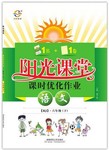题目内容
—Dad,could you tell me next Sunday?
—Nothing special.
A. what you did B. what are you going to do
C. what did you do D. what you are going to do
练习册系列答案
 阳光课堂课时优化作业系列答案
阳光课堂课时优化作业系列答案
相关题目
题目内容
—Dad,could you tell me next Sunday?
—Nothing special.
A. what you did B. what are you going to do
C. what did you do D. what you are going to do
 阳光课堂课时优化作业系列答案
阳光课堂课时优化作业系列答案